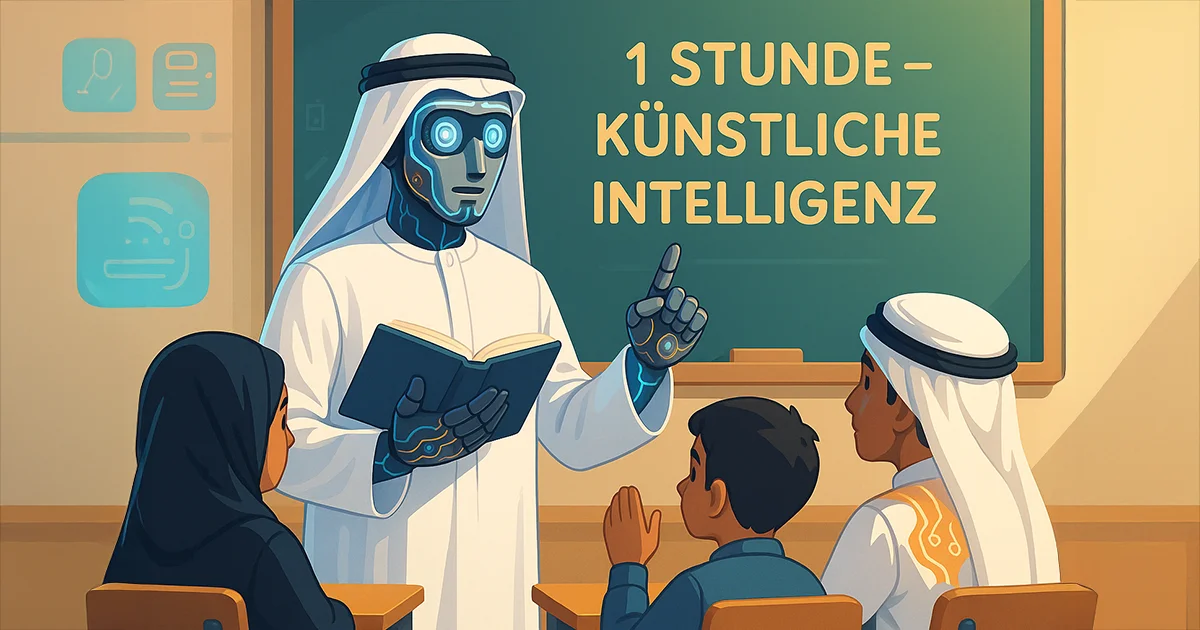UAE introduces AI as a compulsory subject: a strategic step into the future

Artificial intelligence will be taught in all public schools in the United Arab Emirates (UAE) from the 2025/26 school year - from kindergarten to twelfth grade. A rather ambitious step with which the country wants to prepare its students for the digital future at an early stage.
The idea behind it is clear: if you want to keep up tomorrow, you need to understand the basics today. That's why AI should not just be treated as a technology topic, but holistically. The children not only learn what an algorithm is or how machine learning works, but also deal with the ethical questions: Can an AI make decisions? Where are the limits?"
What sets the UAE apart from many other countries is that it does not rely on isolated pilot projects, but on a standardized curriculum for the entire country. AI is integrated into existing subjects such as computer science, natural sciences or design - depending on the age group. Even the youngest children come into contact with the subject in a playful way. In elementary school, the first digital projects are on the agenda; in secondary school, more complex topics such as data processing, automation or creative applications of AI are tackled.
Of course, such a comprehensive project also brings challenges. First and foremost: the teachers. Many of them first need to be trained in AI themselves - not just technically, but also pedagogically. To this end, training courses are planned to prepare teachers specifically for the new content. After all, it's no good if the curriculum is good but nobody can implement it.
The UAE is sending out a clear signal with this step: education must move with the times - and AI is no longer a niche topic, but will have a massive impact on our everyday lives. Perhaps other countries will soon take a closer look if this model catches on. After all, international competition has long been in full swing, especially when it comes to digitalization and future skills.
It remains to be seen whether this concept will work. But the direction is right: Starting early, thinking comprehensively and implementing consistently - that could make the decisive difference in the end. In my opinion, our school system could take a leaf out of this book. How do you see it?
Sources:










